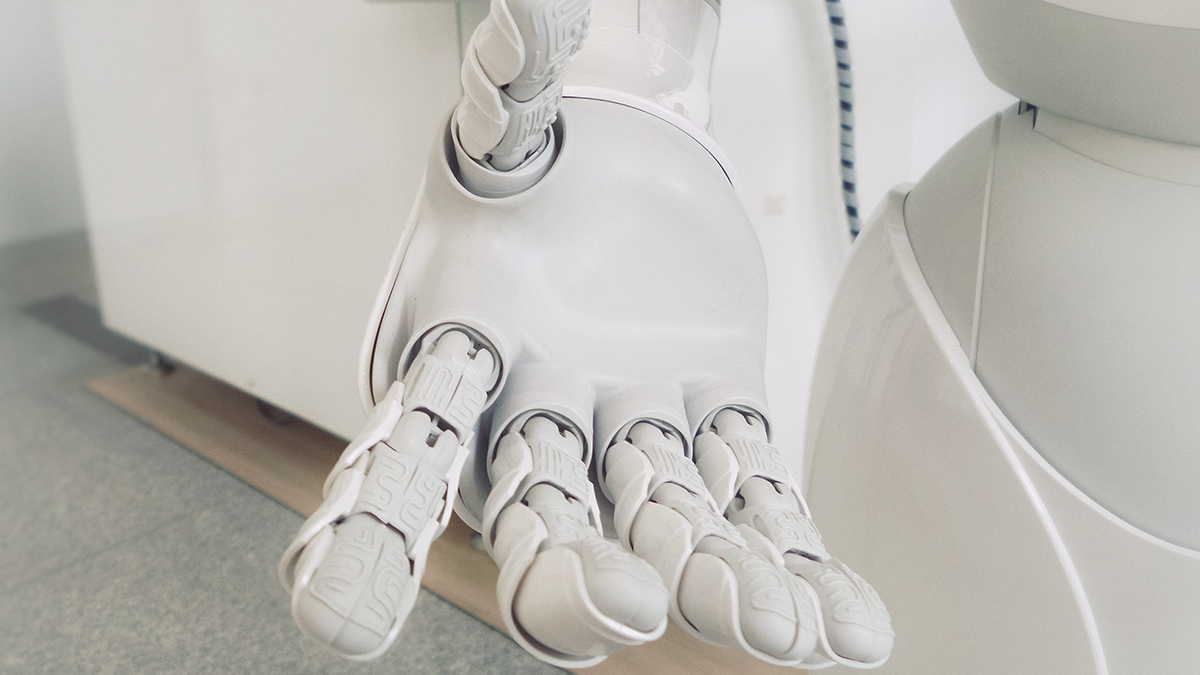
Events and Artificial Intelligence: 2022 and Beyond
https://www.eventmanagerblog.com/events-ai-2022-beyond
FEBRUARY 24, 2022
Artificial intelligence adoption has gained traction throughout the Covid pandemic. But what do these developments mean for the event industry, and could it relieve people altogether from the event planning process in the future?
Previously, some may have argued that the technologies seen today, like self-driving cars, conversational robots, and coffee that brews itself, are best suited to feature in science fiction novels or the dreams of visionaries and younger generations. However, these futuristic technologies have become a focal point over the past few years for everyone across the globe as they seemingly infiltrate more and more aspects of our daily lives. With their continuing rise, adoption, and implementation, society and the world of work are changing. This change also includes the event industry as we know it.
These technology types have proven to provide much-desired support in times of need, like aiding in the management of the Covid pandemic and helping combat the ongoing climate crisis, and allowed people to do things we only ever saw in movies; think of how far hybrid and virtual events have come over the past three years. But if you listen close enough, many have been expressing their concerns regarding what this tech will mean for people long-term — especially when it comes to artificial intelligence.
Specific to our industry, questions such as, “Are event professionals’ jobs safe?” and “What does this type of technology mean for future events?” are being asked. To provide these sought-after answers, here, we explore what artificial intelligence is, its current use-cases in a variety of applications and for events specifically, what we can expect over the coming years, and if we have anything to worry about as an industry.
What is Artificial Intelligence?
Self-Monitoring Analysis and Reporting Technology (SMART), as some call it, features tech like big data, machine learning, the internet of things, and artificial intelligence, otherwise known as “AI.” Artificial intelligence specifically refers to “the capability of a machine to imitate intelligent human behavior,” such as learning, reasoning, planning, and in some cases, a small amount of creativity.
Essentially, artificial intelligence as we know it today involves machines analyzing data pools within an environment, like via a camera or data entered into a system. Once the desired amount of data has been collected, artificial intelligence can respond accordingly and problem-solve while working to achieve a previously programmed goal (think identifying risks or interests). Further, artificial intelligence can work autonomously once programmed while analyzing the effects of previous behaviors (data inputs) received and acting based on pattern recognition.
There are four types of artificial intelligence:
1. Reactive Machines
2. Limited Memory
3. Theory of Mind
4. Self Aware
While some artificial intelligence has been with us for over 50 years, currently, we are working with the second category of artificial intelligence. The remaining two are not yet fully achieved, although scientists and specialists are exploring them. Examples of artificial intelligence relevant to the event industry include SMART virtual assistants, inter-team chat tools, conversational marketing bots, social media monitors, and virtual travel booking systems.
Some sectors are already reaping the benefits of artificial intelligence, including health care, automotive engineering and manufacturing, finance, e-commerce, transportation, and travel, with some saying entertainment features next on the list.
It is also relevant to note that automation does not mean that artificial intelligence is automatically involved — there is a difference. Artificial intelligence can, however, include automation. To explain, automation takes place via software that substitutes humans in carrying out repetitive and routine tasks, like data capture; whereas artificial intelligence, in theory, focuses more on solving problems, creating patterns, and then responding.
Events and Artificial Intelligence: 2022 and Beyond
In an article written by Bernard Maar, a futurist, influencer and tech thought-leader, Maar said, “AI is a central tenet for the disruptive changes of the 4th Industrial Revolution; a revolution that will likely challenge our ideas about what it means to be a human and just might be more transformative than any other industrial revolution we have seen yet.”
But what does this mean for people who work within the sector, and the future events industry?
AI VERSUS EVENT PROFESSIONALS
As seen above, artificial intelligence is best suited to achieving goals that require pattern recognition or logic, like automation, integrations, and forecasting scenarios. To an extent, event professionals do this too — assessing risks of an event, sourcing the best venues, budgeting, and interpreting event data. For these reasons, specific areas of event planning could be taken over by artificial intelligence.
However, while artificial intelligence can work with the above areas and more, this technology falls short when it comes to human creativity, connection, and negotiating, or what is otherwise known as soft skills. These skills are where event professionals get their magic, making it one of the jobs perceived to be safe. One team of university researchers estimated a likelihood of 3.7 percent chance of event planners being totally replaced in a technology-driven future.
“Tasks within jobs will likely be automated, but not all tasks can be automated. So even if you look at the event professional, where you deal with humans, it’s about the experience, [and that] still needs to be humancentric,” said Dr. Jacques Ludik, an artificial intelligence expert, multiple AI company founder, and author.
Kevin Jackson, a long-standing (marketing) industry disruptor and thought leader, further explained that even though the current and future use-cases for artificial intelligence may seem unbelievably advanced, it will not oust event professionals entirely: “In the early days, technology was a wheel or a chair now come to mean something different because we’ve attached an electronic component to [it] or a computerized component. But still, technology is there to support us, not replace us.”
Creativity, leading to inspiration, is something that can only happen with “human understanding and intuition,” Jackson suggested. Instead of replacing us, AI and automation will support us by creating more efficient systems and processes. And although artificial intelligence has already dabbled somewhat in the creative sectors, like writing and creating one-of-a-kind art, it is nowhere near the level of people — yet.
AI AND EVENTS
At present, artificial intelligence is already making event professionals’ lives easier alongside those in other sectors around the world. Some of this tech being used today includes: chatbots, data analysis, targeted marketing strategies, facial recognition, security, automated language translation, and more.
Another dimension to consider currently taking off in the events space is virtual reality (VR), augmented reality (AR), and the metaverse. While these are not all reliant on artificial intelligence only, there could, in the future, be aspects to these experiences that are, such as avatars and accessibility. For example, avatars could express the emotions people are experiencing in reality online, and accessibility could include breaking down language barriers through automatic translations, allowing people from all over the world to communicate with each other.
At its core, however, artificial intelligence within the events industry can co-create value and experiences alongside event professionals, and the possibilities are significant. A study carried out on the topic explored the impact of artificial intelligence on event experiences and “how its application may lead to potential value formation in event experiences.” The study further concluded: “The events industry is expected to be one of the business environments in which AI has great potential and we already witness ‘sprinkles of AI innovation’ on the global landscape.”
Logistics
Not only can artificial intelligence enhance event experiences, but it can also increase efficiencies when it comes to systems, processes and operating costs.
As an example of a task that could benefit from this potential, Jackson pointed to the scenario of sourcing audio-visual equipment in other countries when hosting an event internationally. He suggested that with artificial intelligence in the future, planners could task the tech to locate the required equipment at the best cost, thus minimizing the budget overheads while reducing harmful emissions often associated with transporting equipment unnecessarily across regions. Essentially, it boils down to using artificial intelligence to deal with logistics and potential environmental impacts.
Personalization
Ludik, on the other hand, implied that the real value of “what’s-to-come” could manifest as ultra-personalized event experiences. He stated that artificial intelligence or machine learning is getting better at natural language processing for things like video and audio, leading to a strengthened AI and SMART tech toolbox. Ultimately, these advances will make it easier for humans to interact with all sorts of systems.
He elaborated that every interaction with an app is information. It is data. So, if we capture that, we can drive insights about content preferences. If people look at content similar to what Netflix and Amazon produce, event professionals can build recommendation engines that can suggest content based on previous behaviors.
This process is especially relevant in consumer-facing industries like events, where every interaction will be recorded on a SMART device, such as an online platform. “[T]he whole value chain if you think about events, every aspect of it would be more personalized, more automated…So, one just needs to adapt,” Ludik explained.
Working With Artificial Intelligence
It seems that, for the most part, event professionals’ jobs are safe for the foreseeable future. With that said, the subset of event professionals involved primarily in repetitive tasks and logistics may be replaceable, potentially resulting in smaller event teams. Regardless of where professionals fall within the industry’s scope of jobs, however, upskilling can ensure agility and survival when adapting to this new world.
As Jackson pointed out, “[In the past] we did slightly different jobs… and [technology] made us more effective and efficient. And that’s what’s gonna happen this time.” Jackson refers to the fact that technology has evolved throughout our industry’s history, subsequently requiring event professionals to learn new skill sets. He added that while people may feel scared by the changes, we shouldn’t concern ourselves with what artificial intelligence can do to us, but rather what it can do for us — similar to the introduction of the internet and email — the journey can be revolutionary.
However, many have mixed feelings about AI and the future that could materialize from its increasing presence. Some suggest it will enhance and serve humanity. Others feel our current trajectory could turn into a dystopian nightmare if not managed ethically. For these reasons, tech giants like Google, Microsoft, and Amazon set up a foundation called “Partnership on AI” to gain critical insights into AI’s impact on the world from an ethical perspective.
Further, with this line of thinking in mind, Ludik advised that event professionals should work not only on enhancing their skills, like being literate in SMART technology but also on keeping a human-centric mindset.
“What does it mean to be human in the 21st century? We need to answer that question. And what is meaningful living? And then try to accentuate that and think about what is really good about humanity,” Ludik concluded. Ultimately, the purpose should be about making people’s lives better.


